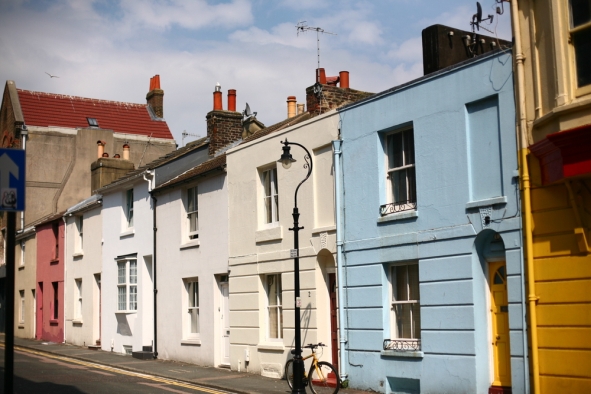The fall in home ownership across Britain since the finacial crisis is fuelling wealth inequality, new research shows. The spread of property wealth across Britain in the mid-1990s and mid-2000s fueled a decade-long fall in wealth inequality, but that progress has now gone into reverse. According to think-tank the Resolution Foundation, one in 10 adults now […]
 The fall in home ownership across Britain since the finacial crisis is fuelling wealth inequality, new research shows.
The fall in home ownership across Britain since the finacial crisis is fuelling wealth inequality, new research shows.
The spread of property wealth across Britain in the mid-1990s and mid-2000s fueled a decade-long fall in wealth inequality, but that progress has now gone into reverse.
According to think-tank the Resolution Foundation, one in 10 adults now own around half of the nation’s wealth, while the top 1% own 14% of Britain’s wealth.
Even this figure may be an underestimate given the great difficulties in measuring the wealth of the super-rich. By contrast, 15% of adults have no or negative wealth.
The report shows that the nation’s record £11.1 trillion of wealth is distributed far less equally than earnings or household income, with the Gini coefficient for wealth – a common measure of inequality – almost twice as high.
However contrary to the popular perception that wealth inequality has been rising for decades, the report shows that the inequality of net financial and property wealth fell steadily between 1995 and 2005, with the Gini coefficient falling from 0.71 to 0.64.
This fall in inequality was driven by high and rising home ownership, which meant that more households further down the wealth distribution gained a key asset and were able to benefit from the pre-crisis property price boom.
The proportion of property wealth owned by the bottom four-fifths of adults grew from 35% in 1995 to 40% in 2005.
The Foundation warned that with home ownership steadily falling since its mid-2000s peak, the proportion of property wealth owned by the bottom four-fifths of the population has started to fall again.
Home ownership among the least wealthy half of the population has fallen by around 12% since the financial crisis, while it has continued to rise by 1% for the wealthiest 10%.
This shift in property wealth towards the richest families means that shifts in property ownership are now driving up overall wealth inequality, rather than reducing it. Using a broader measure of total wealth in this period which includes private pensions, the Gini coefficient rose from 0.67 to 0.69.
The research shows that total wealth across Britain – including private pensions, net property, net financial and physical wealth – continued to rise in the wake of the financial crisis, from £9.9tn in 2006-08 to £11.1 trillion in 2012-14. This increase has been driven by rising pension wealth, in particular final salary pensions which have got more valuable as annuity markets have tumbled.
However, despite Britain as a whole getting wealthier, the wealth of a typical adult has fallen since the financial crisis, from £99,000 in 2006-08 to £84,000 in 2012-14. This fall has been due to reductions in property wealth, in turn driven by falling home ownership and the fall in house prices that followed the crisis and which have still not fully recovered in many parts of the UK.
Private pensions account for 40% of total wealth at £4.5 trillion, followed by net property wealth at £3.9 and net financial wealth (14% of £1.6 trillion).
Conor D’Arcy, policy analyst at the Resolution Foundation, said: “The accumulation of wealth over the course of our lives is arguably the most important driver of lifetime living standards, and yet it has been largely ignored in the public debate. Given the hugely unequal distribution of wealth across Britain, it’s time we looked into how the nation’s wealth is divided up and what the consequences are for those who never build up assets of any significance.
“While many people assume we live in a country of ever growing wealth inequality, in fact Britain witnessed a significant closing of the wealth gap between rich and poor in the decade or so before the crisis. This is largely due to rising home ownership which enabled many less wealthy families to gain a key asset and benefit from rising property prices.
“However with wealth inequality now rising again, the progress of the pre-crisis period has gone into reverse. Falling levels of home ownership mean that having once been a great force in driving down inequality, shifts in who owns what property are now fueling the wealth gap between rich and poor, while also creating sharp wealth divides between young and old too.
It’s vital that policy makers ensure that the key drivers of wealth in Britain today – property and pensions – are accessible to as many people as possible, young and old.”
[box style=”4″]
What Mortgage has teamed up with London & Country to offer you expert advice on the right mortgage deal.
Whether you’re buying a new home, remortgaging to a new deal or buying an investment property, L&C can help – and you’ll pay no fee for their advice. To find out more, click here.
[/box]














